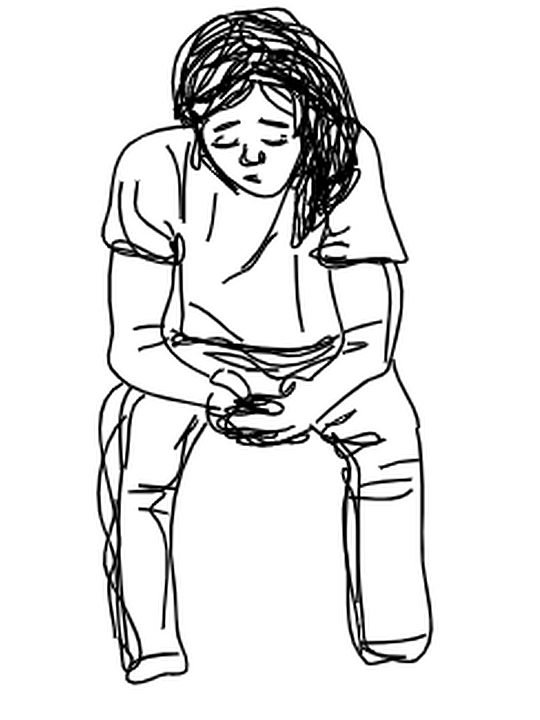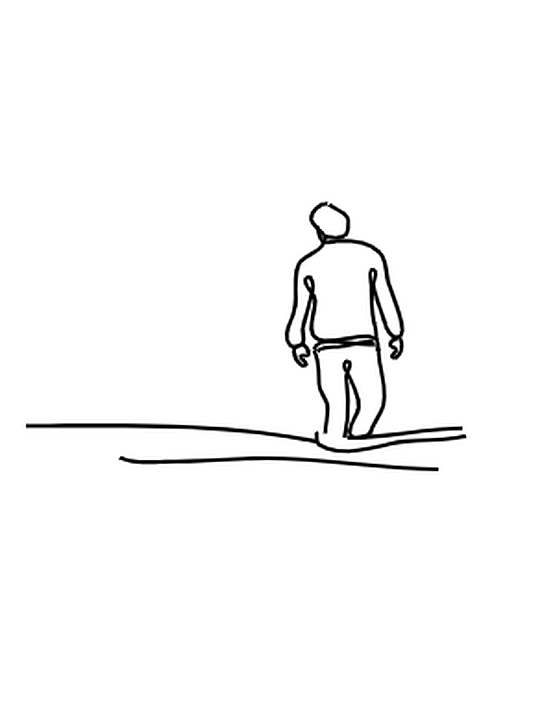Let's talk about loneliness: part one
Last updated 13 June 2022
Loren, our young volunteer, answers other young people's questions about loneliness.
Hi, I'm Loren, one of the young volunteers at the British Red Cross. As part of this loneliness project a group of us have been creating and developing resources we think might help other young people understand and tackle loneliness. I chose to create this blog because I’ve been there! I know how hard feeling lonely can be, but also I know that it won’t feel this way forever and that there is so much support out there.
By writing this blog I hope to shed some light on feelings commonly felt by young people.
All answers, reflections and suggestions are written by young people based on lived experience, with help from the psychosocial team at the British Red Cross.
You can also access free information and activities developed by the British Red Cross to help reduce loneliness.
I hope this helps you too.
Why can people feel lonely even when they are surrounded by friends and family?
Loneliness can seem like a negative thing. Maybe it's something we don't talk about. Actually, anyone can feel lonely and probably everyone has at some point. It is very possible to be surrounded by supportive friends and family but still feel lonely.
In fact, research shows that people aged 18 -25 are at increased risk of feeling significantly lonely at the moment. It’s easy to understand why. However, it’s important to remember that everyone experiences loneliness slightly differently. What one person might feel could be totally different to someone else in the same situation. And that's OK. It's part of being individually you.
We spoke to a group of young people to ask how they would define loneliness. They said...
“Loneliness to me is still feeling alone with nowhere to turn even when surrounded by lots of people.”
“Not having people you feel understand you”.
If you relate to these feelings, please know you are not alone. In the words of one young person we spoke to, “feeling genuinely connected to others, having open and honest conversations about your feelings, is more important to feeling less lonely than being in a room full of people.”

Drawn by Loren
What types of people are most likely to feel lonely?
Loneliness is a part of life, and it is important to validate and acknowledge it rather than judge or assume the reasons people feel this way. Emotions are our body’s way of telling us what we are lacking in our lives in the same way that if you feel hungry, you probably need some food.
Some factors that might increase someone’s feelings of loneliness include having high levels of anxiety, being socially isolated or experiencing a major life event. This could mean moving to a new area, being a new parent or just coming out of hospital. Someone could relate to all or none of these things but still feel lonely.
One in five people experience feelings of loneliness. People who are more marginalised tend to feel more lonely too, like those without an internet connection or digital skills, or people from minority communities who face discrimination. For anyone who feels lonely, it is important to know you are not alone and that there is help out there.
Is loneliness such an issue because humans are social creatures?
In my experience, young people are more prone to loneliness because we live very social lives. We as young people rely on our friends a lot of the time or are used to being surrounded by lots of people our own age through school or university. Some of us enjoy being with people often, but sometimes young people can feel pressured to be really social when we might just want some time to ourselves. Having external or internal pressure to fit in with friends and social groups can actually make you feel more anxious and low, which can lead to a longer-term feeling of loneliness.
Social media can help people connect with their friends and family, or people with common interests, all across the world. However, social media can also increase loneliness if it gives you unrealistic expectations of how social and interesting your life should be, if you spend a lot of time scrolling without really connecting to people or if too many people are trying to connect at once and you just can’t deal with it.
I think there can be a tendency to compare yourself to others which can make you feel under-confident and ultimately lonelier. Be mindful of keeping a healthy balance and getting familiar with your personal habits and what works for you.
Use social media as a tool to connect with people you genuinely care about but limit how much you use it before bed or how much you use it in one day. Be aware of people or groups that start to affect your mood negatively and block or mute conversations if you need to.

Drawn by Loren
How do I know if someone is feeling lonely?
There are things we can keep an eye out for in ourselves and in others. People who are feeling particularly lonely might change their moods or behaviour. They may be suddenly quieter, or could be sending more messages and reaching out more than usual. It can affect how much you sleep and eat too. There might be other reasons why someone acts differently, but the best way to find out is to ask. Pick a relaxed time with no pressure, and start by talking about a topic you both like. For example, are you both up to date on your favourite TV programmes? Do you have a fun memory together? Gently ask how they are feeling. Don’t be afraid to be direct and ask if they feel lonely at times.
Make sure they feel comfortable. Sometimes it’s too hard to say how they feel straight away. Let them know you are there for them and keep checking in with them. This could be done over a socially distanced walk or online. I find voice notes or Facetime calls are a good way to feel connected, when not in person.
Let's talk about loneliness: part two
Loren, our young volunteer, answers other young people's questions about how to help with loneliness.
Read more